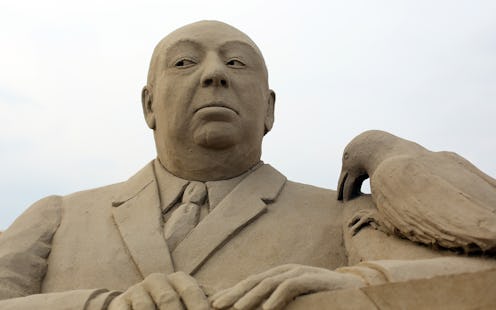Entertainment
Alfred Hitchcock Made a Holocaust Film?
Alfred Hitcock's films are some of the most violent, disturbing, and thrilling pictures in cinematic history. His movies made audiences scream, vomit, and literally pass out in their seats. He was dubbed the "Master of Suspense," and his films are constantly being remade and re-envisioned in film and on TV. Yet ironically, the guts and gore seen in his films, do not mirror his real life sensibilities. For in reality, Hitchcock was disgusted by violence. This might explain why Hitchcock made a documentary about WWII nazi death camps.
Haven't heard of it? Neither had we. The doc, which Hitchcock collaborated on with business partner Sidney Bernstein, will be finished and restored in time to be released on British television in 2015. The New Zealand Herald claims the doc will feature "the most atrocious and disturbing footage that had yet been recorded in cinema at that stage", footage that when Hitchcock saw it, couldn't return to his movie studio for a week afterwards, because he was so repulsed.
"Once they discovered the camps, the Americans and British were keen to release a film very quickly that would show the camps and get the German people to accept their responsibility for the atrocities that were there," said Dr. Toby Haggith, a curator at the Imperial War Museum.
Yet the doc was taking longer to make then they had hoped, and by late 1945, the need for it had faded, due to the fact that the allies changed their minds about guilt tripping the Germans, thinking showcasing German guilt wouldn't help with postwar reconstruction. So, the film was halted, thrown into a back room of the Imperial War Museum, and soon forgotten.
Luckily, in the 1980s, a museum researcher came upon the footage, rusted over and uncared for, and the attempt to restore it began. While audiences are anxious to see the footage, Haggith warns: "We can't stop the film being incredibly upsetting and disturbing," adding, "but we can help people understand why it is being presented in that way."
Image: Getty
